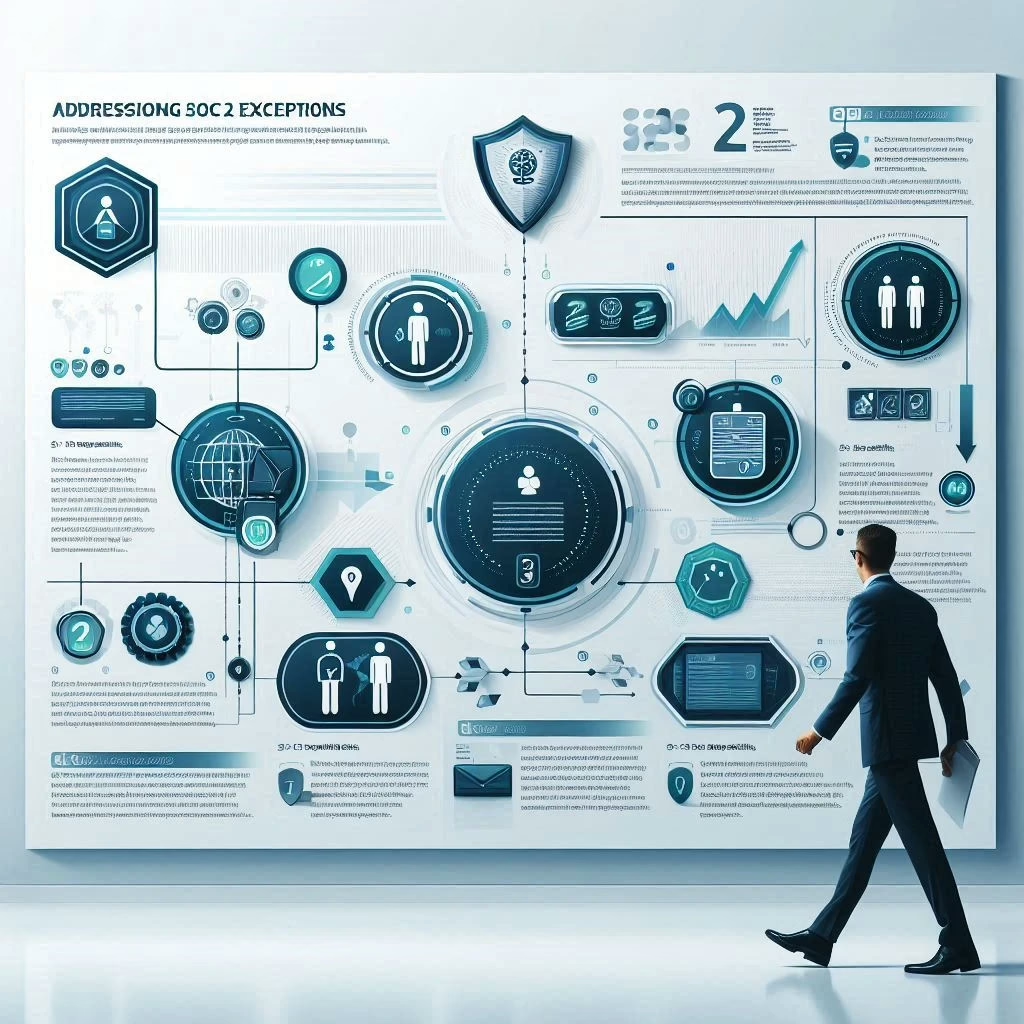Introduction to Integrated Audits
In the contemporary landscape of internal auditing, integrated audits have emerged as a pivotal approach, particularly in response to the increasing prevalence of remote work environments. This section aims to define integrated audits, highlight their significance in risk assessment and control evaluation, and explore how the shift to remote work has influenced auditing practices.
Definition of Integrated Audits and Their Components
Integrated audits combine financial statement audits with assessments of internal controls, creating a holistic view of an organization’s operations. This approach is designed to ensure that auditors not only verify the accuracy of financial records but also evaluate the effectiveness of internal controls that govern those records. The key components of integrated audits include:
- Financial Statement Audit: This aspect focuses on the accuracy and fairness of financial reporting, ensuring compliance with applicable accounting standards.
- Internal Control Assessment: Auditors assess the design and operational effectiveness of internal controls, which are essential for mitigating risks and ensuring reliable financial reporting.
- Unified Audit Plan: Integrated audits utilize a single audit plan that encompasses both financial and control assessments, streamlining the audit process and minimizing disruptions to the organization’s operations [15].
Importance of Integrated Audits in Assessing Risk and Controls Across Various Functions
The significance of integrated audits lies in their ability to provide a comprehensive evaluation of an organization’s risk management and control frameworks. By examining both financial and operational aspects, integrated audits help organizations:
- Identify Interrelationships: They reveal how various processes within the organization interact, allowing for a more thorough understanding of potential risks and control weaknesses [14].
- Enhance Efficiency: With a unified approach, integrated audits reduce redundancies and improve the overall efficiency of the audit process, leading to more timely and actionable insights.
- Support Compliance: In an era of heightened regulatory scrutiny, integrated audits ensure that organizations maintain compliance with laws and regulations, thereby safeguarding their reputation and financial integrity [10].
Overview of How the Rise of Remote Work Has Prompted Changes in Auditing Practices
The transition to remote work has significantly influenced auditing practices, necessitating adaptations in how integrated audits are conducted. Key changes include:
- Increased Use of Digital Tools: Auditors are leveraging digital tools to access and analyze records remotely, which enhances efficiency and allows for real-time monitoring of controls [6].
- Focus on Continuous Monitoring: Traditional audit processes are evolving to incorporate continuous monitoring, enabling auditors to respond more swiftly to emerging risks in a remote environment [8].
- Enhanced Communication: Remote work has necessitated improved communication strategies among audit teams, ensuring that all members are aligned and informed despite physical distances [9].
Integrated audits are becoming increasingly vital in today’s business environment, particularly as organizations adapt to remote work. By providing a comprehensive view of risk and control across various functions, integrated audits not only enhance operational efficiency but also support organizations in navigating the complexities of modern governance and compliance.
The Shift to Remote Work: Challenges and Opportunities
The rise of remote work has significantly transformed the landscape of internal auditing, presenting both challenges and opportunities for audit professionals. As organizations adapt to this new normal, understanding the implications of remote work on integrated audits is crucial for maintaining effective audit processes.
Statistics on the Increase in Remote Work
The shift to remote work has been substantial, particularly in the internal audit sector. According to a survey conducted by The IIA, 58% of chief audit executives (CAEs) reported that their teams were performing all or most of their work remotely, while an additional 22% utilized a hybrid approach that combined remote and in-person work [5][7]. This dramatic change in work dynamics necessitates a reevaluation of traditional audit methodologies and practices.
Challenges Faced by Internal Audit Teams in a Remote Environment
While remote work offers flexibility, it also introduces several challenges for internal audit teams:
- Communication Barriers: Large audit teams often struggle with effective communication and collaboration in remote settings. This can hinder brainstorming sessions and group problem-solving efforts, which are essential for thorough audits.
- Data Access Issues: Remote work can complicate access to necessary data and documentation, which may be stored on-site or in secure environments. This can delay audit processes and impact the quality of findings [8].
- Collaboration Difficulties: The lack of face-to-face interaction can lead to misunderstandings and reduced team cohesion, making it harder to coordinate efforts and share insights among team members.
Opportunities for Enhancing Audit Processes Through Technology and Innovative Practices
Despite these challenges, the remote work environment also presents unique opportunities for internal audit teams to enhance their processes:
- Leveraging Technology: The adoption of digital communication tools and cloud-based platforms has become essential for remote auditing. These technologies enable auditors to work from virtually anywhere, facilitating real-time collaboration and data sharing [8].
- Innovative Practices: The need for adaptability has prompted internal auditors to rethink their approaches. This includes utilizing regulatory standards as a framework for defining audit scopes and identifying out-of-scope inquiries as potential new projects [9].
- Increased Focus on Risk Management: Remote work has heightened the importance of identifying and managing risks, such as cybersecurity threats and supply chain disruptions. Internal auditors are in a unique position to support organizations in navigating these challenges and emerging stronger from disruptive periods [12][14].
The evolution of integrated audits in response to remote work is a complex but necessary adaptation for internal audit professionals. By addressing the challenges and seizing the opportunities presented by this new work environment, audit teams can enhance their effectiveness and contribute to the resilience of their organizations.
Evolving Integrated Audit Methodologies
The landscape of internal auditing is undergoing significant transformation, particularly in response to the rise of remote work environments. Integrated audits, which combine various audit processes and methodologies, are adapting to meet the challenges and opportunities presented by this new normal. Here are some key points highlighting how integrated audit methodologies are evolving:
- Shift Towards Digital Tools and Technologies: The integration of digital tools has become essential in conducting audits remotely. Auditors are increasingly utilizing cloud-based systems and virtual platforms to facilitate communication and collaboration among team members and stakeholders. This shift not only enhances efficiency but also allows auditors to overcome geographical barriers, enabling them to conduct audits more effectively from various locations [3][14].
- Incorporation of Data Analytics and Cybersecurity Considerations: As organizations embrace digital transformation, the need for robust data analytics and cybersecurity measures in integrated audits has become paramount. Auditors are leveraging advanced technologies such as machine learning and data analytics to analyze transaction patterns and identify anomalies. This proactive approach helps in detecting potential fraud and compliance issues, ensuring that audits are not only thorough but also relevant in a digital context [5][10]. Additionally, cybersecurity considerations are now integral to audit planning, as auditors must assess the risks associated with remote access to sensitive data and systems.
- Changes in Audit Planning and Execution Strategies: The planning and execution of audits have evolved to accommodate the unique challenges posed by remote teams. Auditors are advised to keep the duration of remote audits concise and focused on key risks, often splitting larger audits into smaller, more manageable segments spread throughout the year. This approach recognizes that remote audits may require more engagement and investment from auditees compared to traditional on-site audits [2]. Furthermore, the integration of continuous auditing methodologies allows for ongoing monitoring and assessment, which is particularly beneficial in dynamic remote work environments [3][7].
The evolution of integrated audit methodologies in response to remote work is characterized by a greater reliance on digital tools, enhanced data analytics capabilities, and strategic adjustments in audit planning and execution. As internal audit professionals navigate this new landscape, embracing these changes will be crucial for maintaining the effectiveness and relevance of their audit practices.
Best Practices for Conducting Integrated Audits Remotely
As the landscape of work continues to evolve, internal audit professionals must adapt their strategies to effectively conduct integrated audits in remote environments. Here are some actionable strategies to ensure successful audits while maintaining quality and integrity:
1. Effective Communication Strategies for Remote Audit Teams
- Establish Clear Communication Protocols: It is essential to define how and when team members will communicate. Regular check-ins via video conferencing can help maintain engagement and clarity among team members [10].
- Utilize Multiple Channels: Leverage various communication tools such as instant messaging, emails, and video calls to ensure that all team members are on the same page. This multi-channel approach can help address different communication needs and preferences [11].
- Encourage Open Dialogue: Foster an environment where team members feel comfortable sharing updates, challenges, and feedback. This can enhance collaboration and problem-solving during the audit process.
2. Utilization of Collaboration Tools and Platforms for Seamless Interaction
- Adopt Technology Solutions: Use collaboration platforms like Microsoft Teams, Slack, or Zoom to facilitate real-time discussions and document sharing. These tools can help streamline workflows and keep everyone connected [2][3].
- Shared Document Repositories: Implement cloud-based file-sharing systems to allow team members to access necessary documents and data from anywhere. This ensures that all relevant information is readily available and can be updated in real-time.
- Virtual Audit Management Tools: Consider using specialized audit management software that supports remote audits. These tools can help in planning, executing, and reporting audits efficiently, even from a distance [10].
3. Maintaining Audit Quality and Integrity While Adapting to Remote Conditions
- Develop a Comprehensive Audit Plan: A well-defined audit plan that outlines objectives, scope, and methodologies is crucial. This plan should also address how remote conditions will be managed to ensure that audit quality is not compromised [5][15].
- Regular Performance Reviews: Continuously assess the performance and outcomes of the remote audit against established objectives and criteria. This helps in identifying areas for improvement and ensuring that the audit remains aligned with its goals.
- Training and Support: Provide training for audit staff on remote auditing tools and processes. This can enhance their skills and confidence in conducting audits remotely, ultimately contributing to the integrity of the audit process [6][10].
By implementing these best practices, internal audit professionals can effectively navigate the challenges posed by remote work environments while ensuring that integrated audits are conducted with the highest standards of quality and integrity.
The Future of Integrated Audits in a Hybrid Work World
As organizations continue to adapt to the realities of remote and hybrid work environments, the role of internal audit is evolving significantly. Integrated audits, which combine various audit functions and methodologies, are becoming increasingly essential in navigating the complexities of these new work models. Here are some key points to consider regarding the future of integrated audits in a hybrid work world:
Predictions for the Future of Remote and Hybrid Work Models
- Sustained Hybrid Work: The trend towards hybrid work is expected to persist, with many organizations adopting a blend of on-site and remote work arrangements. This shift necessitates a reevaluation of audit practices to ensure they remain effective in diverse work settings [5][11].
- Technological Integration: The integration of advanced technologies, such as AI and machine learning, will play a crucial role in facilitating remote audits. These tools can enhance data analysis, improve efficiency, and provide real-time insights, making integrated audits more effective in a hybrid environment [1][12].
Long-term Impact of Integrated Audits on Organizational Resilience and Risk Management
- Enhanced Risk Management: Integrated audits will contribute to stronger risk management frameworks by providing a holistic view of organizational processes. This comprehensive approach allows for better identification and mitigation of risks that may arise from remote work practices [10].
- Organizational Resilience: By adopting integrated audit methodologies, organizations can bolster their resilience against disruptions. The ability to adapt audit processes to changing environments will be critical in maintaining operational continuity and ensuring compliance with evolving regulations [6].
Importance of Continuous Adaptation and Learning for Internal Audit Professionals
- Ongoing Education and Training: As the landscape of work continues to change, internal audit professionals must prioritize continuous learning. Staying updated on emerging trends, technologies, and best practices will be essential for effectively conducting integrated audits in hybrid settings [9].
- Agility in Audit Practices: The ability to quickly adapt audit strategies and methodologies in response to new challenges will be vital. Internal auditors should embrace flexibility and innovation to meet the demands of a dynamic work environment [8][14].
The future of integrated audits in a hybrid work world is poised for transformation. By leveraging technology, enhancing risk management practices, and committing to continuous learning, internal audit professionals can navigate the complexities of remote work and contribute to their organizations’ resilience and success.
Conclusion
As the landscape of work continues to evolve, integrated audits have emerged as a crucial component in the internal audit profession, particularly in the context of remote work environments. The integration of various audit elements allows organizations to gain a comprehensive understanding of their financial, operational, and compliance strengths and weaknesses. This holistic approach is essential for effectively navigating the complexities introduced by remote work, where traditional audit methods may fall short. By leveraging technology and adopting cloud audit tools, firms can streamline their processes and enhance their ability to conduct thorough audits, regardless of location [1][5].
Internal audit professionals are encouraged to embrace this change and foster innovation within their teams. The shift to remote work presents an opportunity to rethink traditional audit practices and implement best practices that prioritize communication, data security, and efficiency [13]. By adapting to these new norms, auditors can not only maintain their effectiveness but also enhance their work-life balance, as remote auditing has been shown to provide greater flexibility and autonomy.
Moreover, collaboration and sharing of experiences within the internal audit community are vital for continuous improvement. Engaging with peers to discuss challenges and successes in integrated audits can lead to valuable insights and strategies that benefit the entire profession. As we move forward, it is imperative for internal audit professionals to remain open to new ideas and approaches, ensuring that they are well-equipped to meet the demands of an ever-changing work environment. Together, we can navigate this new normal and drive the future of integrated audits in the internal audit field.
Find out more about Shaun Stoltz https://www.shaunstoltz.com/about/
This post was written by an AI and reviewed/edited by a human.



